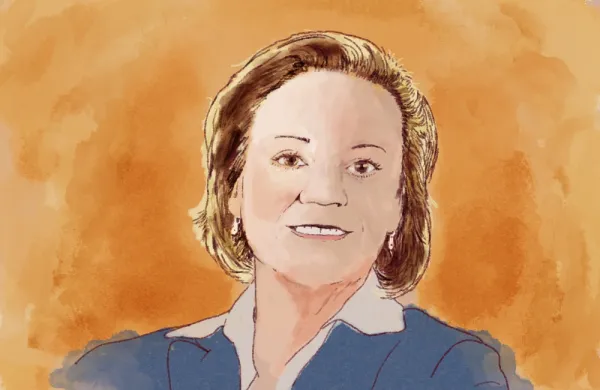Just as the financial crisis that started in the United States has reverberated through markets around the world, so the malaise gripping U.S. luxury hotels is now spreading around the globe.
This downturn, though, does have an upside for affluent travelers. Although high-end-hotel managers are loath to advertise discounted room rates for fear of sullying their brands, industry executives say that many hotels will quietly offer deals if travelers know how to ask for them. Managers are also throwing would-be guests other goodies — from complimentary spa treatments to free Internet service. Accustomed to paying for everything, luxury hotel guests traveling during today’s economic crisis could find themselves dining gratis in their hotel restaurant and taking advantage of free transportation.
The luxury hotel sector, both in the U.S. and around the world, has never been known for its freebies. But successive storms have battered the business this fall, grounding executives’ travel plans and forcing companies to cancel many meetings and conferences (click on the following title to see our 2008 World's Best Hotels report).
First, Wall Street collapsed, sending shock waves throughout global banking circles and sparking massive cutbacks across the financial services industry, most notably in New York and London, the traditional bulwarks of luxury hotels. It’s been a sudden blow: Overall hotel revenue in the U.S. hit an all-time high of $139.4 billion in 2007, up $6 billion from 2006, according to Hendersonville, Tennessee, hospitality data research company Smith Travel Research.
The boom times, it seems, are over. Monthly cancellation rates at U.S. luxury hotels hit an unprecedented 20 percent in October 2008, says Bjorn Hanson, a hotel expert and associate professor at the Tisch Center for Hospitality, Tourism and Sports Management at New York University. And according to Smith Travel data, monthly revenue per available room was down 15 percent from October 2007. This compares to a drop of 6.6 percent worldwide in September 2008, the latest global figure available, from the same month last year.
Industry analysts don’t predict a turnaround anytime soon. According to PKF Hospitality Research, a U.S. hospitality research firm, hotel room supply is expected to be up 3 percent by the end of 2009 from an estimated 4.6 million rooms at year-end 2008. With continued economic uncertainty this is expected to push revenues per available room down a further 4.3 percent by the end of 2009, and hotel profits down an additional 7.9 percent.
Globally, the situation is almost as dismal. Worldwide, luxury hotels are feeling “the same general trends, but not yet quite as [severely] as we’re seeing in the U.S,” notes Hanson. Tokyo, heavily dependent on international business travel, and the Caribbean, a resort destination popular with the Wall Street crowd, have been hit hardest. Hanson says about a dozen international-brand luxury hotels have opened in Tokyo in the past five years, including a Ritz-Carlton, a Peninsula and a Grand Hyatt.
At the Tokyo Grand Hyatt, for example, room occupancy fell to 74.5 percent in September 2008 from 84.5 percent in the same month last year, owing to a drop in business travel, according to Nikkei Weekly.
Europe is also feeling the pinch. “Hoteliers now have a real fight on their hands to uphold rate growth and sustain profitability,” says Jonathan Langston, managing director of TRI Hospitality Consulting in London. Overall hotel demand fell for the second consecutive month in September in most European markets, according to TRI. “And it’s interesting what’s happening in Dubai, which people thought was recession-proof,” says the Tisch Center’s Hanson, noting that Dubai hotel occupancy started slipping sharply in mid-October.
As if battling a global recession weren’t hard enough, experts say, there’s another force at play — a stigma attached to staying at luxury hotels. Industry analysts cite the political backlash in the U.S. after it emerged that American International Group spent approximately $440,000 on a hotel bill — including more than $20,000 in spa treatments — during a weeklong incentives conference at a St. Regis resort in Southern California, just one week after the government bailed the insurer out with $85 billion in loans.
The political outcry that followed has prompted some companies to curb travel expenditures, analysts say. For example, in an October 24 memo, ABC News president David Westin detailed various new cost-cutting measures, including that executives were expected to “fly one grade below what they are entitled to” and “stay in B-level hotels,” read the memo that was published in a New York newspaper.
Even companies that haven’t actually slashed travel budgets are telling executives to avoid luxury hotels because it “looks bad,” says Hanson.
According to Patrick Ford, president of Lodging Econometrics, this voluntary pullback, “particularly where there has been so much negative talk about executive compensation,” will be especially painful for an industry that has seen the number of hotel rooms in the top luxury segment nearly double, to 80,000, in the U.S. in the past decade.
Souring public attitudes toward high-flying corporate America have made many affluent travelers “self-conscious and insecure” about spending top dollar on a hotel room, he says, even when it makes sense in terms of convenience, superior service and location.
Global economic uncertainty has also paralyzed the corporate market. Companies, pressed to tighten their belts, are calling off some of the meetings and sales conferences that represent almost a third of the domestic five-star-hotel industry’s revenues.
During an early October conference call, Arne Sorenson, the chief financial officer of Bethesda, Maryland–based Marriott International, which owns the Ritz-Carlton brand, explained that Marriott’s 28 percent drop in third-quarter earnings stemmed from a sharp quarterly decline in its corporate meetings business globally. The company is scrambling to fill rooms left vacant by corporate groups, he added. “We’ve seen a significant shortening of the booking window as meeting planners are waiting for rates to drop, waiting for a reliable estimate of their meeting attendance and waiting for budget approval,” he said. In response, Marriott has been offering corporate buyers “incentives to stop waiting and book,” he noted.
Bookings for the Christmas holiday season, however, remain strong. One major luxury hotel executive who wanted to remain anonymous says that’s because most international luxury resorts have been offering quiet promotions the industry would rather not advertise for fear of hurting its cachet.
But as the industry as a whole suffers, this subtle discounting will pay off for travelers who can still afford a nice hotel and want to enjoy some perks. Although it may not appear as reduced room rates, discounting is becoming transparent as even the swankiest hotels feel the squeeze.
In some cases, it’s the hotel owners — the developers and investors who hold most of the debt — who are putting the greatest amount of pressure on the firms that license the brands and manage the properties to do what it takes to fill the rooms. Many owners, who usually stay well in the background, are pressing for major discount promotions to boost short-term revenue, say insiders.
The hotel companies, knowing that prices that are dropped during a crisis are difficult to raise when good times resume, have so far resisted overt discounting.
Luxury leisure brands such as Vail Resorts and RockResorts are promoting holiday and winter packages that combine freebies and extra nights for effective savings of up to one third off normal rates. And big-city luxury hotels are trying to fill rooms by quietly marketing deals to affinity programs, including the American Automobile Association and retiree organization AARP.
It’s a new phenomenon for most luxury hotels, experts say, including the super-five-star brands such as Four Seasons, Peninsula, Ritz-Carlton and Mandarin Oriental, whose managers in normal times never encourage a clerk to cut a deal with a bargain-hunting customer. Fierce resistance to discounting is a tenet of prestige-brand management.
Still, there are deals to be had. As cancellations skyrocket and revenue nosedives, swanky hotels with rooms priced firmly at, say, $900 a night are learning to appreciate the importance of cutting a deal to secure business.
Tim MacDonald, the president of San Jose, California–based Classic Vacations, a travel agency that specializes in luxury trips, says it has become a buyer’s market, but adds that luxury hotels remain steadfastly resistant to being seen offering overt discounts off published rates. Top-line travel agencies are increasingly cutting discreet deals with luxury hotels for trips in which air fare, hotels and even car rentals are lumped into a single price. This means that a five-star hotel that wants to boost occupancy in tough times can discount a room without affecting a published rate. “You can now save thousands of dollars on a luxury package,” MacDonald explains. “If it’s not unprecedented, it’s certainly the first time we’ve seen savings like this in many, many years.”
For example, tour packages came with $500 air-fare credits and other discounts on trips that included stays at luxury European properties such as the Hotel Bristol in Vienna, the Four Seasons in Prague and the Mandarin Oriental Hyde Park in London.
Many experts say that the current level of discounting has not been seen since the slump following the terrorist attacks of September 2001. Yet today’s situation is somewhat unique, notes one executive who works for a major international luxury chain: “I’ve never really seen anything like it. People are paralyzed because there’s no indication when economies will turn around. Everybody’s just waiting to see what everybody else will do.”
For some agents booking corporate travel, the drop-off in reservations has been a relief. They now have greater authority to offer reduced corporate and group rates. Some say they can even give bulk deals that allow some lucky business travelers to move up, rather than down, in class. “We’ve been counseling our clients who have a three-star program to not rule out going for four-star properties, and even four-star to five-star,” thanks to better deals being negotiated on higher-priced hotels, says Noah Tratt, a vice president at Egencia, the corporate travel management company of Expedia.
A luxury hotel will agree to a better deal on price “knowing that only our clients are going to have access to it,” Tratt explains. “It’s not the sort of thing the public is going to stumble across doing a Google search.”






